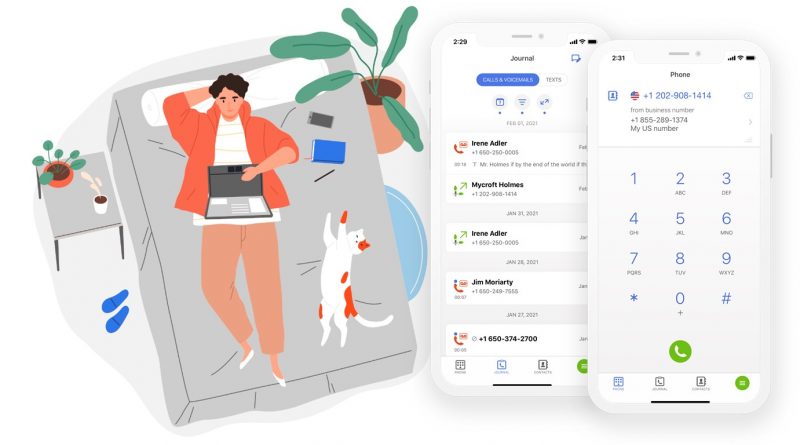Practical Telephone Services for the Business Now
The TCP / IP protocol (Transmission Control Protocol / Internet Protocol) today forms the basis of Internet architecture. It defines the rules allowing computers to communicate with each other. With the announced end of the copper network, more and more companies are deciding to opt for IP solutions for their telephone, that is to say, operating via the Internet network.
What is a phone system?
The Business Phone system (Telephone over Internet Protocol) is a communications service, public or private – which uses the Internet network protocol (IP). Phone system technology transforms voice into data via an IP protocol. These data then circulate on the local network, then transcribed invoice to the interlocutor. This service is provided by phone.com alternatives and other companies as well.
Phone system technology makes it possible to rely on an existing IP network infrastructure to connect terminals, IP-Phone or software solutions (such as Skype).
Conceptually, transporting “real-time” voice streams over a packet-switched network can seem tricky. However, the high speed available in local networks (LAN) and wide-area networks (WAN and Internet) has made it possible to overcome this difficulty and convey voice with a high level of quality.
IP telephone can:
-
- Add to an existing traditional telephone network
-
- Be used in full-IP for a new infrastructure
-
- Be used in multiple full-IP sites with the help of a suitable operator and centralized servers
-
- Be used on a computer connected to the Internet to another computer connected to the Internet using unique software (communications will therefore be free from PC to PC).
What equipment is needed to use the phone system?
To operate, a phone system network needs:
An IPBX switch whose sizing depends on the number of terminals and telephone lines to be managed, on-site or dematerialized (virtual solution hosted in the Cloud)
IP telephone terminals (IP-Phones), softphones (software providing telephone functions), or IP adapters for analog sets,
Network equipment: switches that manage POE (Power over Ethernet) or VLAN (Virtual Local Area Network),
From an IP gateway to an ISDN network access interface which will establish the link to the fixed telephone network of a traditional operator.
What are the differences between the phone system and VoIP?
Phone systems and VoIP are two similar but yet distinct technologies. If both use the Internet Protocol IP, their mode of operation differs.
VoIP transforms voice into digital files, which send packets over a data network (e.g. the Internet) through IP lines. It brings together all the techniques allowing this transit: from an IP telephone to a “normal” PC or phone or even from one computer to another on a company’s internal and external networks.
Data packages
The phone system is a telephone system that is limited to the local IP network. It uses a simple router creating the connection between the LAN network (company) and the WAN network (operator): the IPBX. Phone system brings together all exchanges from IP telephone to IP telephone or even from computer to computer (using the same software).
If the phone system is based on VoIP, VoIP offers multiple applications and services beyond simple telephone: videoconferencing over IP, unified voice messaging, etc. This technology enables convergence between voice, video and data.
Simplified network architecture and maintenance
The phone system allows companies to manage their telephone like a network. The network architecture is simplified thanks to the unification of the voice and data circuits. With a phone system, the telephone services of multi-site companies are homogenized, and the maintenance of telephone lines is simplified for technical teams.




